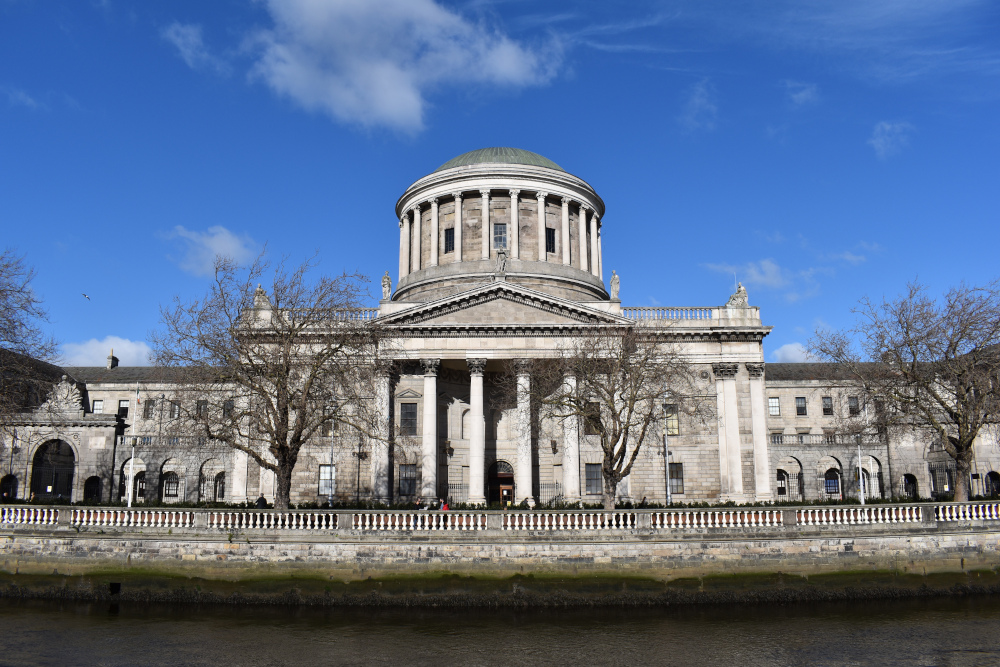McEntee preparing for ‘significant increase’ in number of judges

The Four Courts complex in Dublin
Around €2.5 million has been set aside in anticipation of a “significant increase in the number of judges” in the State, justice minister Helen McEntee has said.
An increase in judicial numbers is likely to be a headline recommendation of the judicial planning working group headed by civil servant Brigid McManus, which will submit its report to the minister within weeks.
The working group was established around a year ago to examine the judicial resource needs within all Irish courts over the next five years. It was announced shortly after the addition of five judges to the High Court, at the time described by ministers as “one of the largest increases in judges in recent memory” but criticised by judges and lawyers as far short of the expansion necessary.
A report published yesterday by the European Commission for the Efficiency of Justice (CEPEJ) notes that Ireland had 3.27 judges per 100,000 inhabitants in 2020, well below the European average of 17.6 — though it noted average judicial salaries were much higher, both at the start of career (€129,704 compared to an average of €46,149) and the end (€208,854 versus €90,287).
Mrs McEntee yesterday told the Seanad: “I hope to get the Brigid McManus report in the coming weeks. I also hope it will set out not just an increase in the number of judges but also where we can have greater efficiencies and perhaps change some of the work practices.
“The solution is not just having more judges but it how they operate and function. I look forward to receiving that report.”
She made the comments during the second stage debate on the landmark Judicial Appointments Commission Bill 2022, which will now go to committee stage next Tuesday. The government had previously said it would aim to enact the bill — the most significant reforms to the judicial appointments process in 25 years — by the end of September 2022.
Previous attempts to reform the judicial appointments process faltered amid significant opposition from parts of the legal profession, particularly over the number and role of lay representatives on any new body. The latest bill, explained by Killian Flood BL in April, has sought to address many of these concerns, but still drew criticism from a number of senators on various grounds.
Senator Michael McDowell, a former justice minister and attorney general, criticised the absence of representatives from the Law Society and Bar Council on the proposed new Judicial Appointments Commission. Both bodies are currently represented on the Judicial Appointments Advisory Board (JAAB).
He said: “There are now thousands of solicitors and thousands of barristers and a growing population of more than five million, and the judiciary will not know an awful lot of the candidates who are before them.
“It is, in my view, a good thing that somebody would have a clear view of the reputation of the candidate, whether he or she is a crank, extremely unpleasant personally or whatever the case may be.
“That kind of reputation is relevant to choosing a good judge. To ask people on the basis of a plausible interview and a good paper CV to make an appointment ignores the opportunity, which I think is a valuable one, for a litmus test of whether the person is, by reputation, suitable to be on the bench. I think the bill is deficient in that it excludes that possibility.”
Meanwhile, Senator Niall Ó Donnghaile, Sinn Féin’s Seanad leader, criticised the proposed role of the attorney general and said Sinn Féin would again table an amendment introducing a “cooling-off period for the appointment of an attorney general to judicial office”.
“We urge the minister and colleagues in government parties to reflect on and consider the merits of the amendment and to consider accepting it,” he added.










